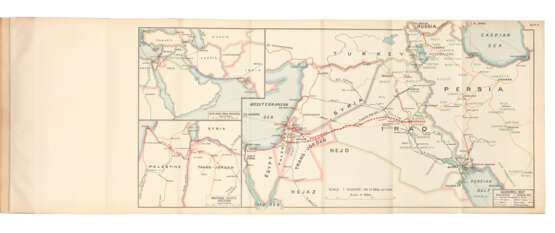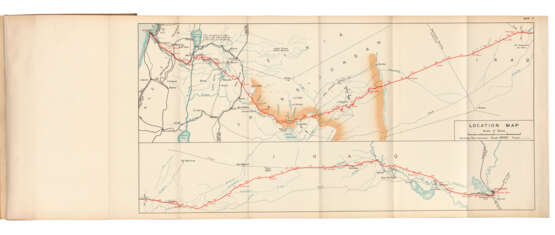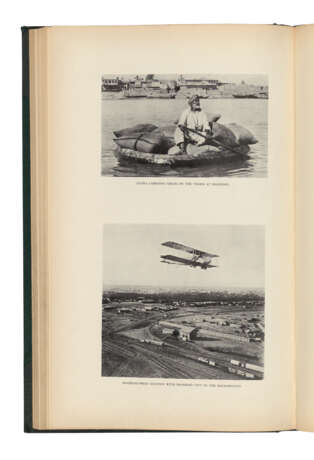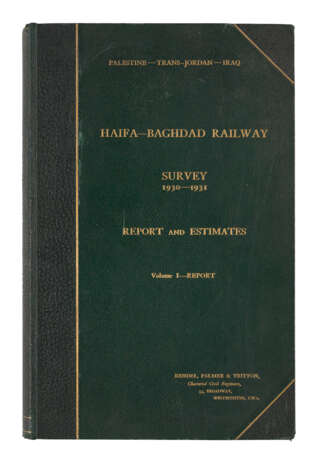ID 381305
Lot 97 | Rendel, Palmer & Tritton, Consulting Engineers
Valeur estimée
£ 1 200 – 1 800
Very rare report by the engineers tasked with surveying possible routes for the proposed Haifa-Baghdad railway, complete with many large folding maps. In the 1920s, the British contemplated building a railway connecting the Mediterranean with the capital of Iraq, ostensibly to shore up imperial rule, support the British-backed Arab government of Iraq, and secure the oil pipeline already running from the Mosul oilfields to Haifa. The British were also aware that, with the development of air warfare, the Suez Canal could be easily attacked in a time of war, and alternative military routes to cross the Middle East to access India were required.
The rail link was no mere pipe-dream concocted within the walls of the Colonial Office; this lot is testament to how serious the British were in their intentions. The survey employed 360 men deployed in 6 camps across the desert, with their motor vehicles covering a total distance of 335,000 miles, costing a total of £22,200, ‘a sum very much in excess of the amount anticipated when the estimates cost of the survey was prepared in 1930’ (p.13).
This report (labelled volume 1 on cover and on title; it seems likely that more detailed estimates were listed in volume 2, not present here) covers the geology and seismology of the region, its meteorology and water sources, as well as discussions on the general history and geography of the region, and possible traffic revenues.
It concludes that the best route to traverse the most difficult part, that from Haifa, over the Jordan, and then eastwards to the Trans-Jordan plateau, was through the valley of Wadi el Arab, although it required a gradient of 2% (1 in 50) over 30 miles and necessitated the construction of seven tunnels and nine viaducts. The survey concluded that a standard gauge railway could be built for just over £7.7M, or a metre gauge railway (that used by the Hejaz Railway) for £7.3M, with the capital being repaid over a term of 54 years based on estimated traffic and incomes.
However, a series of economic difficulties trumped political and military expediency, and with the outbreak of the Second World War, the dream of a trans-Middle East rail service evaporated.
Volume 1 (only of ?2), small folio (331 x 210mm). 10 colour-printed maps, 5 of which very large and folding and bound at end within numbered tabs, the other 5 full-page, one black and white map of the Arabian peninsula showing pilgrim routes in text on p.125, 9 leaves of photographic plates printed on both recto and verso (in fine condition, with only a couple of very minor marginal marks on pp. 145-149 and a couple of map tabs lightly creased and soiled). Original dark-green cloth, lettered in gilt (extremities faintly rubbed).
| Adresse de l'enchère |
CHRISTIE'S 8 King Street, St. James's SW1Y 6QT London Royaume-Uni | |
|---|---|---|
| Aperçu |
| |
| Téléphone | +44 (0)20 7839 9060 | |
| Commission | see on Website | |
| Conditions d'utilisation | Conditions d'utilisation |






